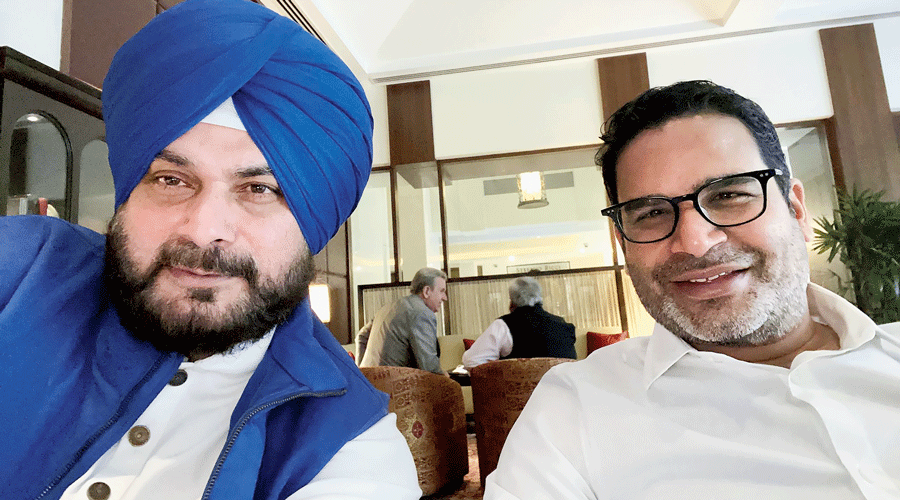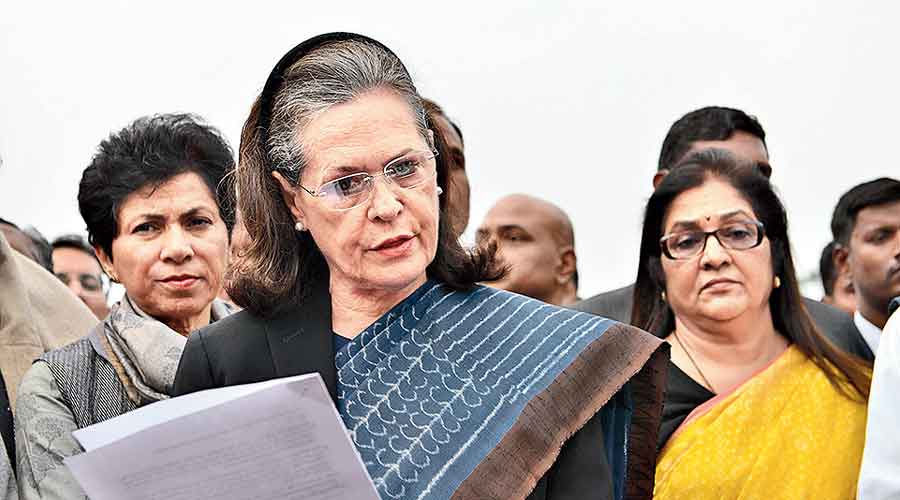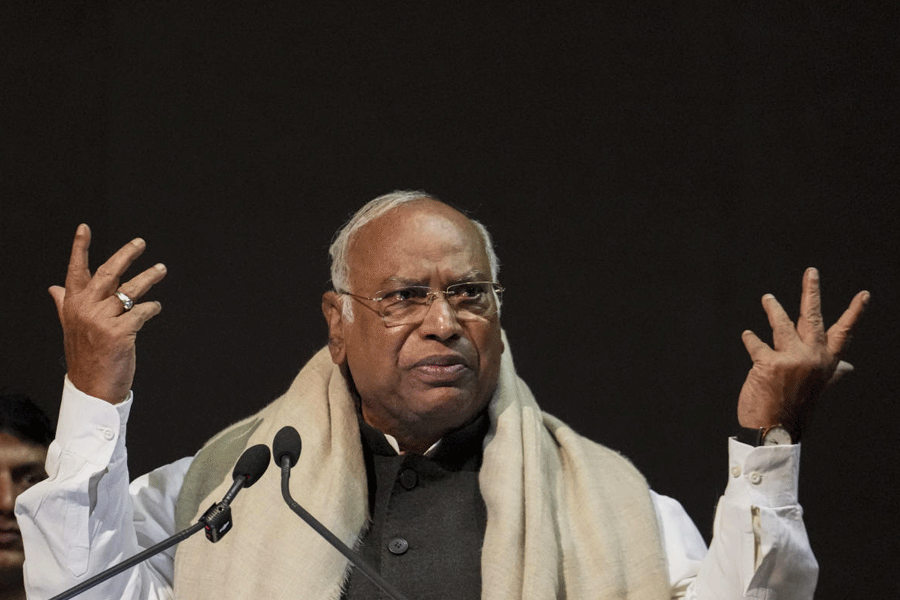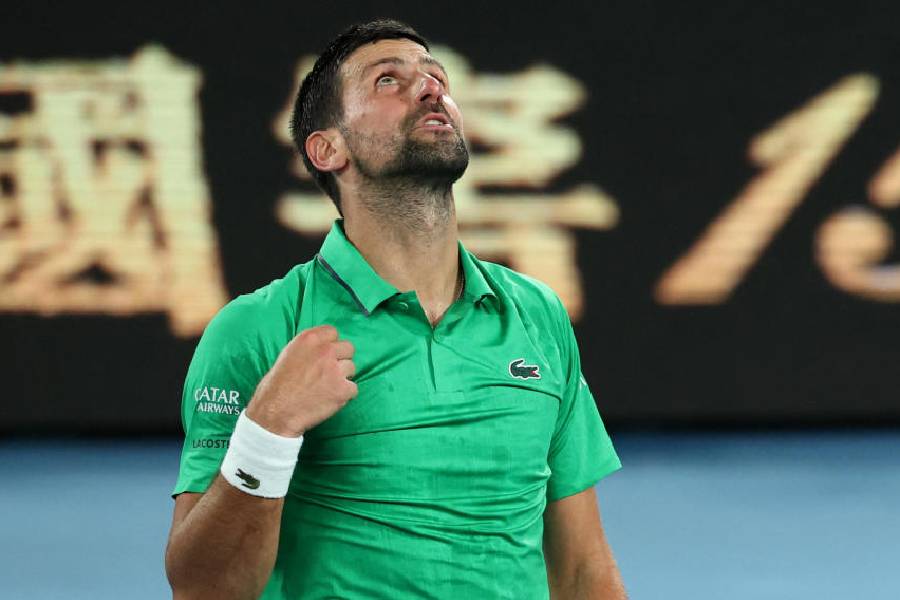Election consultant Prashant Kishor, who was expecting a critical political role in the top hierarchy of the Congress, finally refused to join the party after realising that he was being assessed only for his professional utility.
The Congress leadership did offer to include Kishor in the Empowered Action Group for 2024 along with senior leaders, but made it clear that they didn’t envisage any leadership role for the consultant at this stage.
“We valued his professional expertise and were willing to work with him. As far as joining the Congress is concerned, anybody can become a member. There is a process for that,” a senior leader told The Telegraph.
Without hyping up the turn of events, Congress communications chief Randeep Surjewala tweeted on Tuesday afternoon: “Following a presentation and discussions with Prashant Kishor, the Congress president has constituted a Empowered Action Group 2024 and invited him to join the party as part of the group with defined responsibility. He declined.”
Surjewala added: “We appreciate his efforts and suggestions given to the party.”
This was a quiet burial to the idea projecting the professional as a saviour of the 137-year-old party that had led India’s freedom struggle and governed the country for over 60 years. The suggestion that the consultant would decide the leadership structure, organisational revamp, and the communication and election strategy to rescue the grand old party had generated outrage within the rank and file, vitiating the negotiations.
Senior leaders examined Kishor’s presentation and found a few tactical actionable points, but nothing extraordinary. There was a realisation that he expected a top post such as vice-president or general secretary, which generated unease within the party. The dominant view was that the Congress could not be dictated to by an outsider but that he could be hired as a consultant.
But Kishor, who had aimed much higher, was unwilling to play that technical role of assisting leaders in revamping the party. His response to Surjewala’s disclosure came through this tweet: “I declined the generous offer of Congress to join the party as part of the Empowered Action Group and take responsibility for the elections. In my humble opinion, more than me the party needs leadership and collective will to fix the deep-rooted structural problems through transformational reforms.”
The humility barely concealed the sarcasm. The reference to “generous offer”, when the Congress had offered very little in comparison to his expectations, and the stress on “leadership” and “structural reforms” was a hint that the party’s organisational structures had proved impregnable. It was more like a taunt that the party cannot change despite setbacks.
One Congress leader said: “He is clearly more interested in dictating terms than deploying his skills to help us.”
Asked for a reaction, a party office-bearer said: “I have more than a hundred congratulatory messages in my phone. Party leaders and workers from across the country are relieved.”
It was difficult to find one leader who was dejected by the outcome even as the party tried to avoid sending out an antagonistic message.
A leader explained the collapsed deal: “There were of course a few strong advocates of Kishor who wanted to dance to his tunes. But there were experienced leaders who showed maturity and calculated the pros and cons dispassionately. In a big organisation like the Congress, you can’t bring a person from outside and give him a critical role. More so, when the person had close links with the main rivals and whose ideological affiliations were not clear. How will the leaders who worked for decades feel? Kishor could have worked his way up but he wanted a big-bang entry. The Congress is not the JDU.”
Though criticised for their gullibility initially, the Congress leadership handled the matter with maturity by meaningfully engaging with the consultant and making a calculated offer to him.
The announcement on Monday of an Empowered Action Group and the brainstorming session was a signal that the party was not allowing any credit to the consultant for the revival process. Kishor could have been on board as a member, not a mentor, for which he wasn’t prepared. The script for the climax was authored by Sonia Gandhi on Monday itself.












